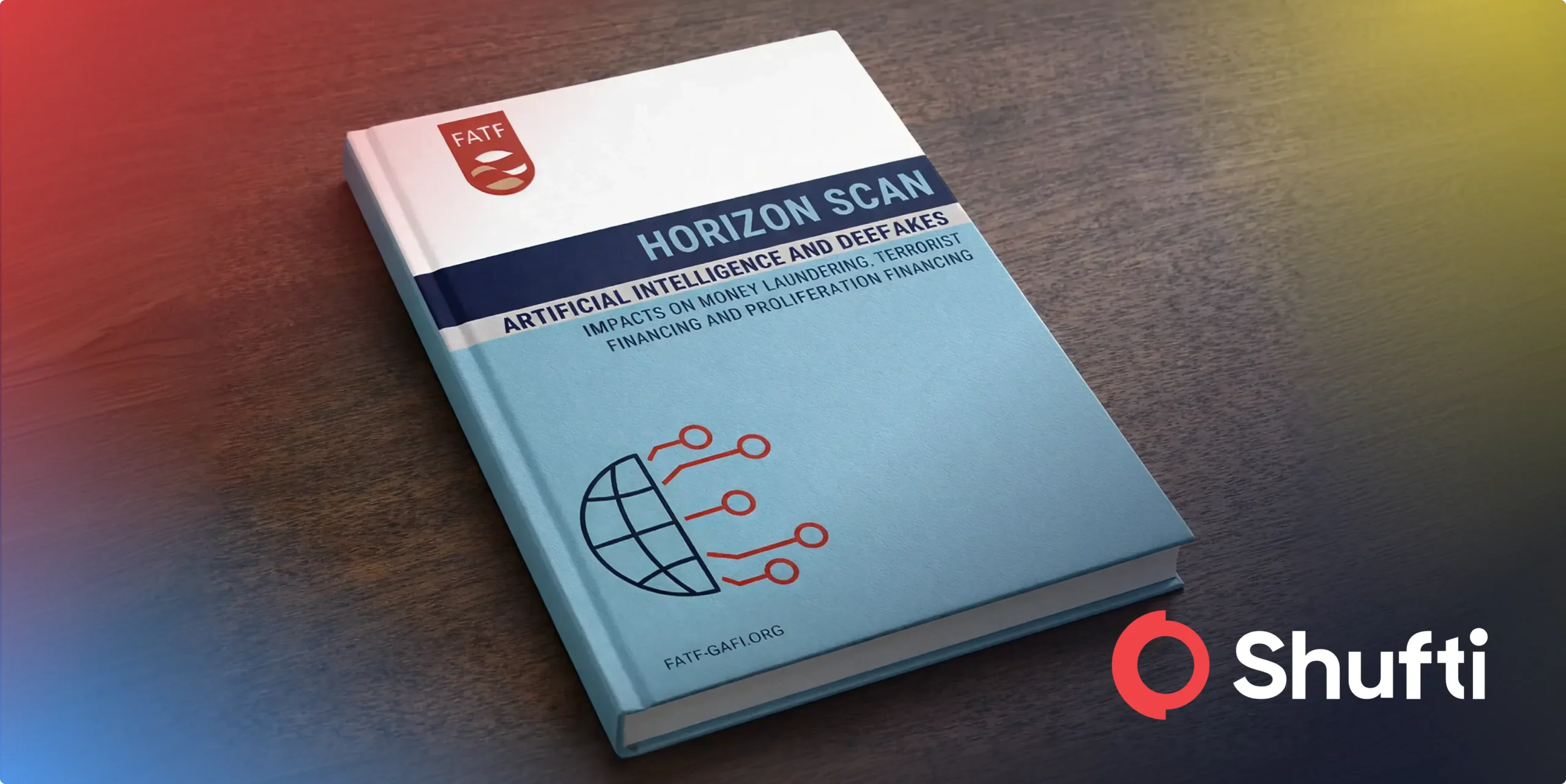AI-Powered KYC: The New Frontier for Financial Inclusion in Fintech

- 01 Beyond Paperwork: How AI-Powered KYC Redefines Identity in Fintech
- 02 Smarter Risk, Safer Systems: AI’s Double Impact on Trust and Compliance
- 03 Tiered KYC and Regulatory Sandboxes: Inclusion Through Innovation
- 04 Real-world impact: Where fintech, KYC, and financial inclusion meet
- 05 How Shufti Empower your Fintech to Lead in Financial Inclusion
- 06 Unlock new markets and Make Real Impact
If you’re building a fintech business, you know the numbers: over 1.4 billion adults¹ worldwide remain unbanked, often locked out by outdated KYC and identity verification requirements.
But what if the real opportunity isn’t just onboarding more users, but instead reimagining what financial inclusion can look like in the age of AI?
Beyond Paperwork: How AI-Powered KYC Redefines Identity in Fintech
Traditional KYC has long been a barrier for millions. Manual document checks, branch visits, and rigid identity verification rules have excluded rural populations, migrants, women, and informal workers — groups most in need of financial inclusion. But AI-powered KYC is rewriting the rules, and not just by speeding up onboarding.
What’s less discussed is how AI-driven KYC makes identity verification possible without standard documents. In countries like India and Nigeria, fintechs are using voice biometrics, behavioral analytics, and even blockchain-based digital IDs to verify users who lack passports or utility bills.
For example, voice AI lets customers authenticate themselves with a phone call in their native language — even offline — making banking accessible in remote areas with limited internet. This approach has led to an 87% increase in rural account openings in some regions, with a notable rise in women’s access to financial services².
Smarter Risk, Safer Systems: AI’s Double Impact on Trust and Compliance
AI-powered KYC isn’t just about faster onboarding — it’s about smarter risk management and fraud prevention, which are critical for sustainable financial inclusion.
Modern fintech platforms use AI to analyze alternative data (such as mobile usage, transaction patterns, and even social connections) to build dynamic risk profiles for customers with no formal credit history.
This means you can safely serve first-time borrowers and micro-entrepreneurs, without exposing your business to higher fraud or default rates. In East Africa, AI-driven credit scoring is enabling hundreds of thousands of people without traditional credit histories to access loans.
By using alternative data and real-time analytics, fintechs are witnessing significant increases in approval rates and decreases in default rates — one study found that AI-based credit scoring reduced default rates by 25% compared to conventional methods, while also expanding access to credit for underserved populations.
On the compliance side, perpetual KYC, or continuous, real-time monitoring of customer behavior, helps fintechs adapt instantly to new threats, keeping fraud rates low and regulators satisfied.
Continuous monitoring and event-driven KYC updates enable financial institutions to promptly identify suspicious activities and respond to changes in customer risk profiles, enhancing both security and compliance.
Tiered KYC and Regulatory Sandboxes: Inclusion Through Innovation
One of the most impactful, yet underreported, trends is the rise of tiered KYC frameworks. Regulators in markets like Brazil and India now allow fintechs to offer “simplified accounts” with lower KYC requirements and transaction limits, making it easier to onboard low-risk, unbanked customers.
AI-powered KYC systems are uniquely suited to these frameworks, dynamically adjusting verification requirements based on risk. This flexibility means your fintech can reach more customers — without sacrificing security or compliance.
Regulatory sandboxes are also accelerating innovation. By allowing fintechs to test new KYC and identity verification models under regulatory supervision, these sandboxes help bring inclusive solutions to market faster, while still protecting consumers.
Real-world impact: Where fintech, KYC, and financial inclusion meet
- Voice biometrics and multilingual onboarding: In India, a major bank’s voice AI system — operating in 12 languages — helped rural women open accounts using only a phone call, increasing female account ownership by 43%.³
- Alternative data for credit: African fintechs use AI to analyze mobile money transactions and social networks, helping “uncreditworthy” users access loans and insurance for the first time.
- Blockchain-based digital IDs: Some fintechs are piloting decentralized identity solutions, letting users control and share their verified credentials across platforms, reducing onboarding friction and fraud.
How Shufti Empower your Fintech to Lead in Financial Inclusion
Driven by regulatory pressure, digital onboarding, and AI-powered fraud detection breakthroughs, the global KYC market is projected to double in size to $14.39 billion by 2030.⁴
At Shufti, we know that to meet this opportunity, financial inclusion is critical. It’s about more than just compliance — it’s about impact, scale, and trust. Our AI-powered KYC and identity verification solutions are built to help you:
- Onboard customers in over 240 countries and territories, supporting 150+ languages and document types.⁵
- Use advanced biometrics, including voice, face, and document verification, to serve customers with or without traditional paperwork.
- Analyze alternative data for dynamic risk scoring, making responsible lending and insurance possible for the unbanked.
- Stay ahead of fraud and regulatory shifts with continuous, real-time KYC monitoring and compliance automation.
Unlock new markets and Make Real Impact
AI-powered KYC and identity verification are more than just tools for compliance. They’re the engine of modern fintech, driving financial inclusion, reducing risk, and opening new markets.
Learn more about Shufti’s approach to KYC in this recent blog
Sources:
¹ https://www.worldremit.com/en/resources/global-financial-inclusion-and-exclusion
² https://www.gnani.ai/resources/blogs/banking-for-the-unbanked-ais-role-in-financial-inclusion/
³ https://www.gnani.ai/resources/blogs/banking-for-the-unbanked-ais-role-in-financial-inclusion/
⁴ https://magistralconsulting.com/kyc-outsourcing-services-boost-efficiency-reduce-costs/
⁵ https://shuftipro.com/regulatory-kyc/

 Explore Now
Explore Now













